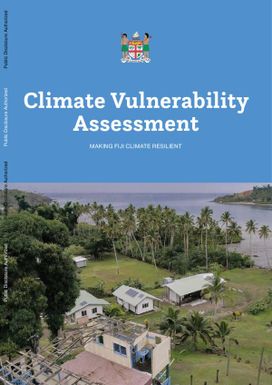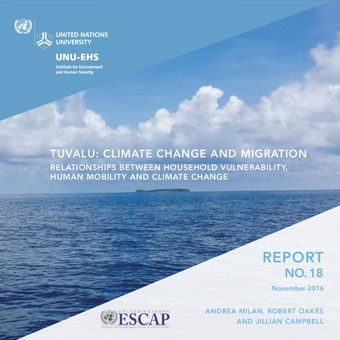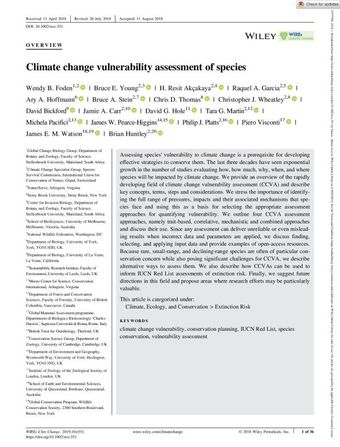Climate vulnerability assessment : making Fiji climate resilient
- Description:
- This report seeks to inform development planning and investment decisions in Fiji. It pilots a methodology that can be replicated in other countries to assess climate and disaster vulnerability and design climate change adaptation and risk management plans and strategies. The report aims to quantify and enhance the understanding of the threat that natural hazards and climate change pose to the countrys Development Plan and objectives. In analyzing the climate vulnerability of Fiji, this study considers two dimensions: (1) the physical threats to the country created by current climate variability and climate change, including shocks such as tropical cyclones and floods as well as longer-term stressors like sea-level rise or temperature impacts on health; and (2) development needs and opportunities of the country, as described in the 20-year and 5-year Development Plan. The analysis identifies threats that could jeopardize Fijis development needs and opportunities, and the interventions that could minimize these threats.
- Display date:
- 2017
- Collections:
- Secretariat of the Pacific Regional Environment Programme (SPREP)
- Publisher:
- Government of Fiji
- Content partner:
- Secretariat of the Pacific Regional Environment Programme (SPREP)
- Availability:
- Not specified
-
Copyright status: All rights reservedFind out more about what you are able to do with this itemThis item is all rights reserved, with means you'll have to get permission from Secretariat of the Pacific Regional Environment Programme (SPREP) before using it. For more information, please see our use and reuse page.What can I do with this item?Non-infringing useNZ copyright law does not prevent every use of a copyright work, and this item may be hosted by an international institute or organisation. You should consider what you can and cannot do with a copyright work.No sharingYou may not copy and/or share this item with others without further permission. This includes posting it on your blog, using it in a presentation, or any other public use.No modifyingYou are not allowed to adapt or remix this item into any other works.No commercial useYou may not use this item commercially.
Related items
Welcome and warm Pasifik greetings
The information on this site has been gathered from our content partners.
The names, terms, and labels that we present on the site may contain images or voices of deceased persons and may also reflect the bias, norms, and perspective of the period of time in which they were created. We accept that these may not be appropriate today.
If you have any concerns or questions about an item, please contact us.


